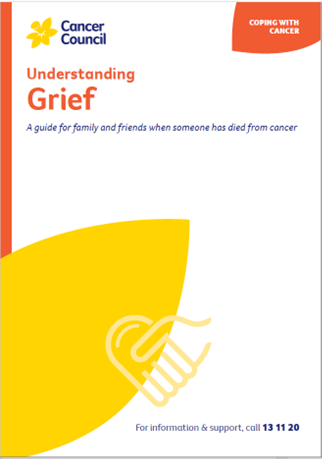- Home
- Cancer Information
- Schools and teachers
- Cancer in the school community
- The bereaved school community
- When a student dies
When a student dies
The survival rates for children and young adults with cancer have improved substantially over the past 20 years. Today, the five-year survival rate for young people with cancer is over 80%, and this rate is expected to increase because of improvements in treatments. However, some children and young adults do die from cancer.
The death of a young person is an enormous tragedy, and it can be difficult to accept. It is important that your school community responds in a compassionate manner. The principal or the student wellbeing coordinator should ask the family of the deceased student what the school can do to help, how the parents would like to inform staff and students (if they don’t already know), and if a memorial can be organised.
If you and your colleagues worked closely with the student, you are likely to feel saddened and will need to take time to deal with your own feelings before talking to students. It may be helpful to attend the funeral service.
The student’s classmates will react in different ways, depending on how old they are. Their reactions will depend on their relationship with the student and their own coping mechanisms. Classmates should be able to turn to school staff for guidance and support.
Remember that a child who dies may have siblings at the school, so parents will still be part of the school community, and this may be difficult at first for other parents who are not sure what to say.
I was devastated when Lisa died. I didn’t think it would happen. She was my best friend and school just wasn’t the same without her.
– Melissa, classmate of secondary student who had cancer
→ READ MORE: When a parent dies
Podcast: Coping with Grief
Listen to more episodes from our podcast for people affected by cancer
More resources
Claire Tobin, Principal Medical Advisor, Department of Education and Training, VIC; Dr Antoinette Anazodo, Paediatric and Adolescent Oncologist, Sydney Children’s Hospital and Prince of Wales Hospital, Director of The Sydney Youth Cancer Service, and Conjoint Senior Researcher, University of New South Wales, NSW; Lisa Barrow, Clinical Nurse Educator, Children’s Cancer Centre, Royal Children’s Hospital, Melbourne, VIC; Margo Bulic, Psychosocial Support Worker, CanTeen, ACT; Amber Copeland, 13 11 20 Consultant, Cancer Council Queensland; Donna Drew, Clinical Nurse Consultant, Paediatric Oncology/Palliative Care, Kids Cancer Centre, Sydney Children’s Hospital, Randwick, NSW; Allesha Fecondo, Education Consultant, Victorian Paediatric Rehabilitation Service, and Education Liaison, Ronald McDonald Learning Program, Ronald McDonald House Charities Australia, VIC; John Friedsam, General Manager of Divisions, CanTeen Australia, NSW; Pina Hutcheson, President, Catholic Primary Principals’ Association of WA; Cara Irvine, Year 8 Coordinator, Alfred Deakin High School, ACT; Andrew Long, Assistant Director, Policy and Research, Independent Schools Council of Australia, ACT; Dr Alistair Lum, Post-doctoral Research Fellow – Behavioural Sciences Unit, Sydney Children’s Hospital, University of New South Wales, NSW; Kristine Luszczynski, Learning Program Manager, Quality and Standards, Ronald McDonald House Charities Australia, NSW; Anita Neville, National Manager, Ronald McDonald Learning Program, Ronald McDonald House Charities Australia, VIC; NSW Department of Education, NSW; Mandy Roney, Consumer; Shannon Rush, Primary School Program Manager, Camp Quality, SA; Luke Wade, Education and Career Support Consultant, Redkite, QLD.
View the Cancer Council NSW editorial policy.
View all publications or call 13 11 20 for free printed copies.
Need to talk?
Support services
Coping with a loss from cancer?
Speak to a health professional or to someone who has been there, or find a support group or forum
Work and cancer
Information for employees, employers and workplaces dealing with cancer
Cancer information
What is grief?
Common grief reactions, such as sadness, anger, relief and fear
Workplace fact sheet: Death and bereavement
Information for employers when a staff member dies or is bereaved

